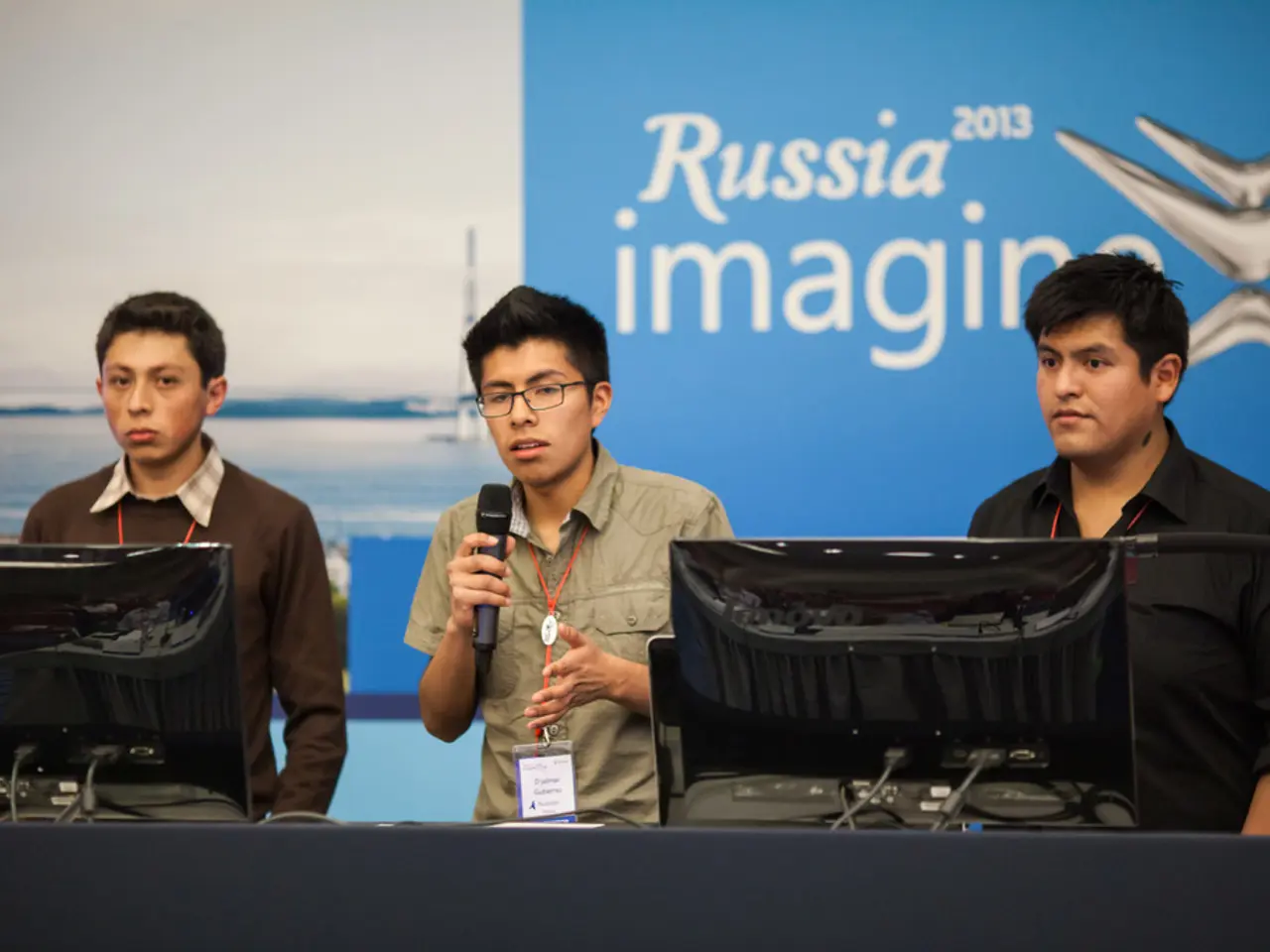Authoritarian Domination through Technology: Unveiling the Methods of Dictatorial Regimes to Exert Power
In the digital age, authoritarian regimes have found a powerful ally in machine learning, transforming the way they monitor, predict, censor, and manipulate social and political activities.
Even memes are not immune from censorship, as a Russian schoolteacher discovered in 2023 when she was fined for sharing an image of Putin with a clown nose. This incident underscores the growing use of technology for control in countries like Russia, where the transition to the digital age has been accompanied by laws and projects designed to keep the information space under lock and key.
The Russian government has implemented various measures, such as Yarovaya surveillance laws, VPN bans, the development of a "Sovereign Internet", and Telegram bots operated by the Ministry of Internal Affairs. Russian companies like VK, Yandex, Sber AI, and Gosuslugi have also developed a domestic tech ecosystem that is deeply integrated with the state, with apps sharing data with the police and search engines ranking state propaganda above all else.
In the early 2000s, authoritarian governments began to understand that data is loyalty, or more precisely, data is obedience. Today, digital tools are not just auxiliary instruments; they are a part of the political machine, particularly in countries like China, Iran, and Russia. Censorship is now code, with automated systems scanning messages, images, and videos in real time, triggering flags, and deleting content without human intervention.
Machine learning has become a key tool for maintaining control and surveillance. AI-powered surveillance tools analyze vast amounts of data from cameras, social media, and other sources, enabling real-time monitoring of citizens and identification of dissent. Advanced deep learning models, such as computer vision for content analysis, help regimes like China enhance censorship by identifying and removing dissenting or undesired information online automatically.
Machine learning also supports social control through predictive policing, allowing authorities to predict and flag individuals or groups deemed risky or oppositional. Technology, embedded with analytics and machine learning, transforms from an auxiliary tool into an environment that directly enforces political control, as seen in countries like China, Russia, and Iran. These regimes use algorithms for surveillance, information control, and restricting digital freedoms via Internet regulations and monitoring bots.
Beyond technical use, authoritarian regimes also employ AI and machine learning to bolster regime narratives, suppress free speech, and control information flow to legitimize their rule and limit emancipatory impacts of technology.
The question remains about who builds and maintains these systems, as well as who profits from them. Western companies, including Yahoo!, Cisco, Nokia Siemens Networks, have sold technology to authoritarian regimes like China and Iran, contributing to the construction of their surveillance states.
The transition to digital began quietly in the 1990s, with many assuming repression would weaken, but what really happened was an upgrade. The idea that dictatorship requires brute force and shouting is outdated; the more efficient regimes have always preferred paperwork. Control is clearest when it's documented.
Hardware is being repurposed for resistance, with hackers in Belarus breaching state databases and paralyzing the Ministry of Internal Affairs, and activists in Myanmar disabling military drones using spoofed signals. Encryption tools like Signal, ProtonMail, and Tor have become quiet revolutions, providing invisible defenses for dissidents and protesters.
However, the digital underground is fragile and heavily surveilled, with possession of a VPN app potentially leading to arrest and interrogation. The digital Panopticon, with facial recognition systems, metadata, and automated DPI systems for deep packet inspection, is a reality in many authoritarian regimes.
In conclusion, machine learning enhances authoritarian regimes' ability to monitor, predict, censor, and manipulate social and political activities, making control more comprehensive, automated, and difficult to evade. This technological integration marks a shift from conventional repression methods to a digitally empowered form of totalitarian control.
- The use of artificial intelligence (AI) in cybersecurity is a growing concern, as it can be employed by authoritarian regimes to identify and suppress dissent online.
- Data-and-cloud-computing services have become essential assets when it comes to enforcing control in countries where authoritarian regimes thrive.
- Migration to digital platforms has made it easier for governments to implement policies that restrict digital freedoms, as seen in Russia's Yarovaya surveillance laws and VPN bans.
- In the gambling industry, AI and machine learning could potentially be instrumental in predicting trends and personalizing experiences, as with casino-games and lotteries in Las Vegas, but their misuse could lead to increased crime and injustice.
- The development and implementation of policy-and-legislation that supports responsible gambling and ensures fairness and integrity in the casino-and-gambling sector is crucial to prevent financial losses and mitigate the consequences of gambling-related accidents.
- In the realm of big-wins, technology has played a pivotal role in the evolution of casino-personalities, revolutionizing the way games are played and strategies are formulated.
- War-and-conflicts have found a new battleground in the digital age, with authoritarian regimes increasingly harnessing AI to censor, predict, and manipulate politics and social activities.
- Crime-and-justice systems in countries such as China and Russia are integrating technology to enhance surveillance, which raises concerns about privacy and accountability.
- General-news outlets covering the casino-culture extensively should also discuss related policy issues, ensuring that both the entertainment and applicable regulations are comprehensively addressed.
- Especially in the context of Las Vegas, the gambling trends that emerge, along with the developers and personalities involved in shaping these trends, should be reported responsibly and critically, considering the wider ramifications on society.




